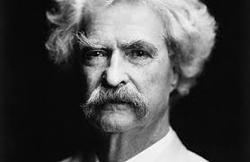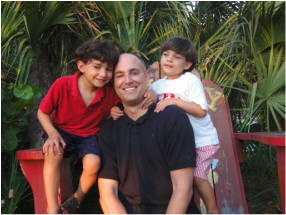
Would you nod in agreement and take another bite of your dinner? Or would you throw down your fork and strongly disagree? Would you be offended? After all, Twain’s theology aside, his remark (made more than a century ago) does not attack Christ, only His followers. It causes one to consider, what does it really mean to be a Christian? My 6 year old son Brady shed light on this for me.
It started with him asking, “Daddy, what is a Christian?”
“A Christ-follower,” I replied. “Someone who desires to be like Jesus.”
“Oh,” he said. “I thought a Christian was when someone can’t walk, you carry them.”
It was more powerful to me than the longest and loudest sermon. (It is starting to make sense to me exactly why Jesus said, “Unless you change and become like little children, you will never enter the kingdom of heaven”). Brady is right. Consider that we hear Jesus celebrate those who carry and lift. The Good Samaritan, who bandaged the wounds of a beaten man, then lifts him and places him atop the donkey for a compassionate ride to shelter. Or the four men who so desperately cared for their paralyzed friend that they carry him to the home Jesus is visiting, then carry him some more until they are on the roof, then lower him to Jesus below through a hole. I wonder if Jesus anticipated this moment as He was teaching inside? Did he hear the men groaning as their muscles ached? Did he hear them urging each other on
to “Keep carrying him just a little more.” Did he hear the crying of the paralytic, burdened with guilt as his friends literally lifted him near the
healer and lowered him to His lap? Do we consider the irony of Roman soldiers forcing an onlooker to help Jesus carry His own cross months later, as Christ carried the weight of our sins on His shoulders?
Believers in Jesus were not called Christians right away. They were first called disciples, until the 11th chapter of Acts tells us they were called Christians (“ones like Christ”) in Antioch.
My hunch is that as dessert is served at our dinner with Twain, one can humbly point him to the Good Samaritan, the four friends of the paralytic, and even my little boy’s definition of a Christian. The literary hero would give a few small nods and reaching for his cigar say, “Yes. The Christian faith as it should be.”
But could we then describe to Twain the last time we carried a stretcher, led a friend to the healer, or bandaged a wound? Or would the conversation become eerily silent, as Twain inquires as to what we have done to advance the cause of the Gospel? Hopefully, somewhere along the way, we could say we've helped somebody get back up. Or at least carried them to where they need to be.

 RSS Feed
RSS Feed
